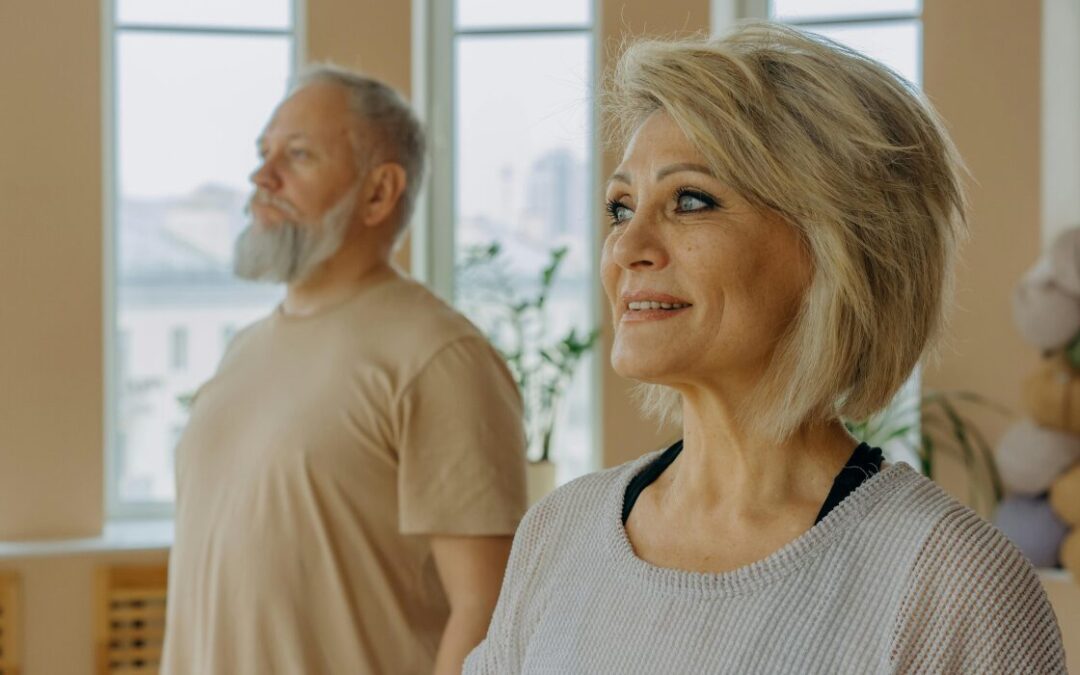As we grow older, life can change in many ways. Our bodies slow down. Our routines shift. Sometimes, we even feel a bit lost. But one thing that should never be ignored is our mental health. It matters just as much as our physical health. The two are closely connected.
Here’s the good news: you can take simple steps to care for your mental well-being, no matter your age. In addition, many effective strategies can easily be incorporated into daily life. To begin with, let’s walk through some of the best mental health tips every older adult should know.
1. Stay Connected with People
Humans are social beings. We need meaningful relationships to thrive. But as we age, it’s easy to lose touch with friends or feel isolated.
- Make an effort to call or visit friends and family regularly.
- Join a local club or senior center to meet new people.
- Consider volunteering—it’s a great way to feel connected and needed.
Even a small chat with a neighbor can lift your mood. Indeed, don’t underestimate the power of human connection—one of the simplest yet most effective mental health tips.
2. Keep Your Body Moving
Physical activity isn’t just for staying fit. It’s a major mood booster, too.
- Take daily walks, even if they’re short.
- Try gentle yoga or stretching at home.
- Join a fitness class designed for older adults.
Exercise releases feel-good chemicals in your brain. It can also help you sleep better and feel more energized.
3. Challenge Your Brain
Your brain needs exercise, just like your body.
- Read books or listen to audiobooks.
- Play puzzles, crosswords, or brain games.
- Learn a new skill or hobby—it’s never too late!
Keeping your brain active is one of the top mental health tips for older adults to stay sharp and alert. Furthermore, engaging in activities that challenge the mind can help improve cognitive function and reduce the risk of mental decline.
4. Get Enough Sleep
Sleep patterns can change as we age. But that doesn’t mean we need less sleep.
- Aim for 7 to 8 hours of quality sleep.
- Stick to a regular bedtime routine.
- Avoid caffeine or heavy meals before bed.
If you have trouble sleeping, talk to your doctor. Sleep is essential for your mental and physical health.
5. Practice Gratitude
It’s easy to focus on what’s gone or changed. But taking a moment to notice what’s good can shift your entire outlook.
- Start a gratitude journal.
- Each day, write down three things you’re thankful for.
- Reflect on happy memories and small joys.
Moreover, a grateful mindset can boost your mood and help reduce anxiety or depression.
6. Stay on Top of Your Health
Your physical health and mental health go hand-in-hand; therefore, taking care of one can significantly improve the other.
- Keep up with regular medical check-ups.
- Take your medications as prescribed.
- Talk to your doctor if you notice any mood changes.
Don’t be afraid to bring up mental health. It’s just as important as blood pressure or cholesterol.
7. Embrace a Routine
Having a daily routine gives structure to your day. It can also give you a sense of purpose.
- Set simple goals for each day.
- Stick to regular mealtimes and sleep schedules.
- Plan time for activities you enjoy.
A steady routine can calm your mind and provide stability, especially during uncertain times.
8. Limit News Consumption
It’s good to stay informed, but too much news can be overwhelming.
- Choose a trusted source and check it once or twice a day.
- Avoid sensational headlines or social media overload.
- Take news breaks when you start to feel anxious.
Your mental peace is worth protecting.
9. Don’t Be Afraid to Ask for Help
Feeling down, anxious, or lonely? You’re not alone, and you don’t have to handle it by yourself.
- Reach out to a friend, family member, or neighbor.
- Talk to a counselor or therapist.
- Join a support group online or in your community.
Among all mental health tips, seeking help when needed is a sign of true strength.
10. Focus on What You Can Control
There’s a lot in life we can’t control. Health issues, loss, or world events can be tough. But you can always choose how to respond.
- Take deep breaths when stress hits.
- Focus on small actions you can take today.
- Be kind to yourself.
Therefore, accepting what we can’t change helps us stay calm and focused.
11. Eat for Your Brain

What you eat affects how you feel.
- Include fruits, vegetables, whole grains, and healthy fats.
- Drink plenty of water.
- Limit processed foods and sugar.
A healthy diet supports both brain and body.
12. Laugh Often
Laughter is good medicine.
- Watch funny movies or shows.
- Share jokes with friends.
- Reflect on silly or joyful memories.
Humor is one of the most joyful mental health tips you can practice every day. Moreover, it helps reduce stress and boosts overall well-being.
13. Get Outside
Fresh air and sunlight can work wonders.
- Sit in your garden or on the porch.
- Go for a stroll in the park.
- Listen to birds or watch the sunset.
Nature has a calming effect and can boost your vitamin D levels, which supports mood health. Additionally, spending time outdoors can improve overall well-being and reduce stress.
14. Keep a Sense of Purpose
Purpose fuels motivation and joy.
- Take care of a pet or garden.
- Mentor someone younger.
- Work on a project that excites you.
Living with purpose is one of the most fulfilling mental health tips for older adults. Moreover, it can provide a sense of meaning and direction, enhancing overall well-being and satisfaction in life.
15. Reflect and Meditate
Quiet time helps you check in with yourself.
- Try simple meditation or breathing exercises.
- Reflect on your day or emotions.
- Use apps or guided recordings if you need support.
Stillness helps soothe the mind and reduce stress.
Final Thoughts
Aging brings change, but it doesn’t mean losing joy or peace. This phase of life can be deeply fulfilling, especially with the right tools.
You don’t need to do everything at once. Start small. For instance, choose one of these mental health tips to focus on today.
And remember: you matter—your well-being matters. Ultimately, taking care of your mind is one of the best gifts you can give yourself at any age.
FAQ’s
1. Why is mental health important for older adults?
Because it affects everything—mood, memory, sleep, relationships, and even physical health—a healthy mind supports a happy, independent life.
2. What are the early signs of mental health issues in seniors?
Moreover, changes in appetite, sleep troubles, mood swings, memory loss, withdrawal from social activities, or lack of interest in hobbies could be signs.
3. Can older adults get depression or anxiety?
Yes. These conditions are common but often overlooked in older adults. Fortunately, they’re treatable—therapy, medication, and lifestyle changes help.
4. Is memory loss always a sign of dementia?
Not always. Mild forgetfulness is normal with age. But if memory loss interferes with daily life, it’s worth getting checked by a doctor.
5. What mental exercises help seniors the most?
Moreover, puzzles, reading, learning new skills, storytelling, and games that involve strategy or memory all support brain health.
6. Are medications necessary to improve mental health in older adults?
Not always. Many people benefit from talk therapy, routine changes, exercise, or diet shifts. But when needed, medications can be helpful, under medical supervision.
7. How can caregivers support older adults’ mental health?
Additionally, by offering companionship, listening without judgment, encouraging hobbies, watching for signs of depression or isolation, and helping with medical appointments.
8. Is therapy effective for older adults?
Absolutely. Moreover, therapists trained in geriatric care can help older adults navigate grief, anxiety, loneliness, or life transitions.

